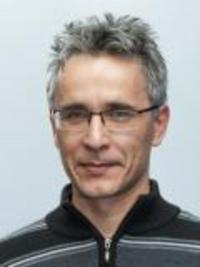Stay calm and follow the rules you cultivated during your life, do not change them haphazardly for anything or anybody

Download image
Josef Línek was born on the 6thof September 1967 in Chrudim. His mother was an art teacher and his father worked as a technician for the local branch of Transporta. Since a young age he showed interest in literature and started working on his first translations from English in high school. After graduating from high school he enrolled in a programme at the Department of English Studies and the Department of Czech Studies at the Faculty of Arts of the Palacký University in Olomouc, later adding a classic philology programme which he did not finish. In 1989 he founded and a was an active member of the student strike committee in Olomouc. Since 1992 he has worked as a senior lecturer at the Department of Czech Studies at the Faculty of Arts of the Palacký University. In the 1990s he also worked as a literary translator, currently he translates scientific studies. Josef Línek is married and lives in Prostějov with his family.
